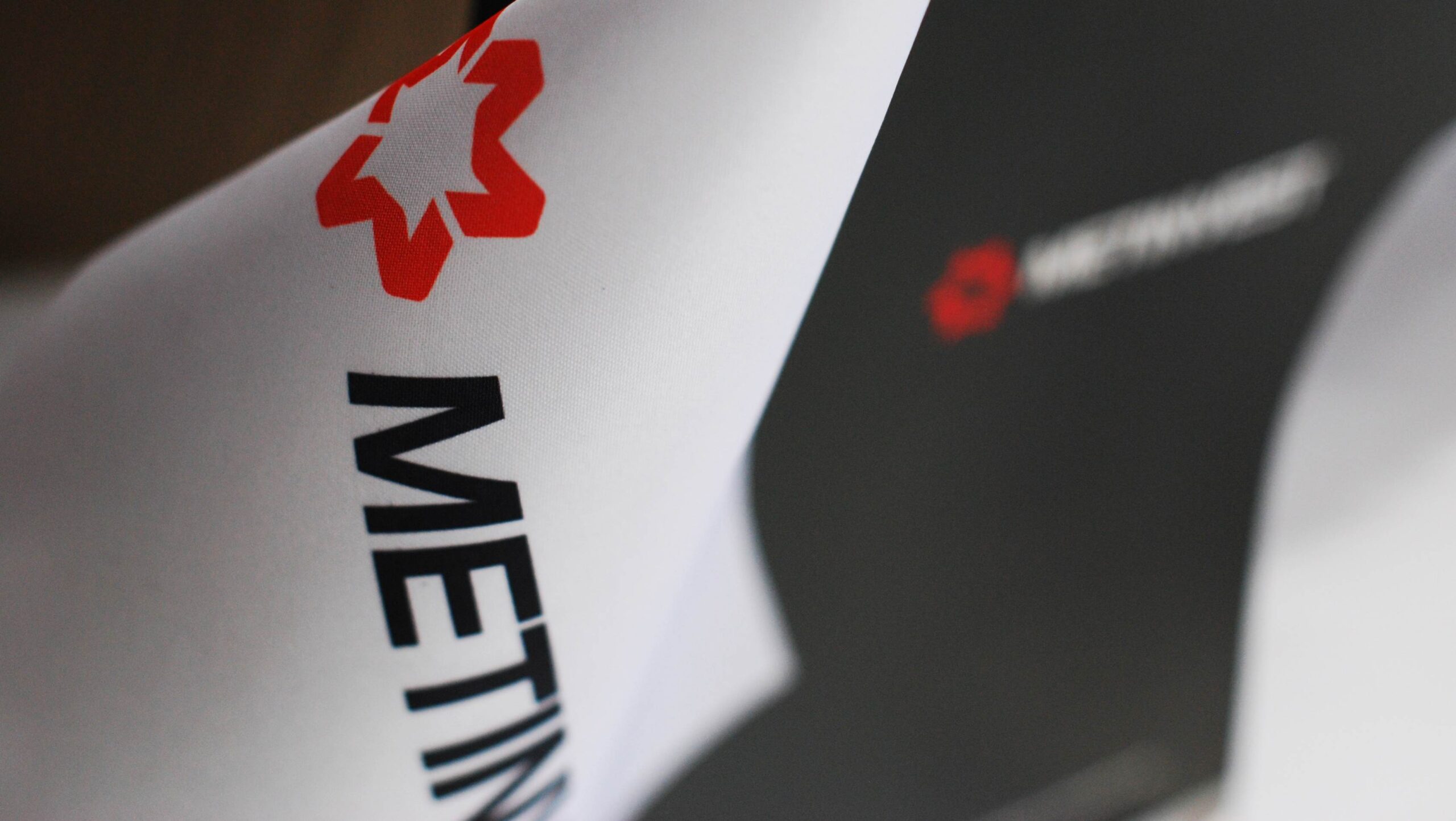
Ukraine’s galvanized steel consumption reaches pre-war levels: Metinvest
Ukrainian galvanized rolled steel consumption increased last year by 41% on-year to 243,000 tonnes, says Metinvest SMC director of sales for metalworking Denys Yarko. In 2022, the figure was 172,000t.
“The main drivers for growth were the increase in demand in the civil construction segment and among end consumers, as well as the stabilisation of the electricity supply situation since the second quarter of last year,” he said at a government meeting this week. “About a third of the total consumption, 32.6%, was Ukrainian-made, with 79,000t of galvanized product going to the domestic market.”
Two thirds of the market is occupied by imported products, Kallanish notes. Of the 164,000t of imported galvanized steel consumed in Ukraine last year, the majority came from Turkey – 116,800t – doubling versus 2022.
In 2023, a significant volume of galvanized steel was also imported by Ukraine from Poland (13,600t), Slovakia (12,700t) and Romania (8,700t).
Metinvest SMC predicts further growth in consumption of galvanized steel in Ukraine. In 2024, the company expects the domestic market to increase by 19% on-year to 289,000t.
Ukrainian steel companies decreased production in February compared with the previous month to 531,900t, down by 2.2% from January, but this was up 25.5% year-on-year (see Kallanish passim). Output of pig iron decreased by 10.6% month-on-month to 495,700t, but was up 40.2% on-year. Rolled products output was 1.3% less on-month, but 35% more on-year at 447,200t.
In January-February, production of steel increased by 52% on-year to 1.08 million tonnes and pig iron by 42.4% to 1.05mt. Rolled products output surged by 52.9% to 900,200t.
Svetoslav Abrossimov Bulgaria

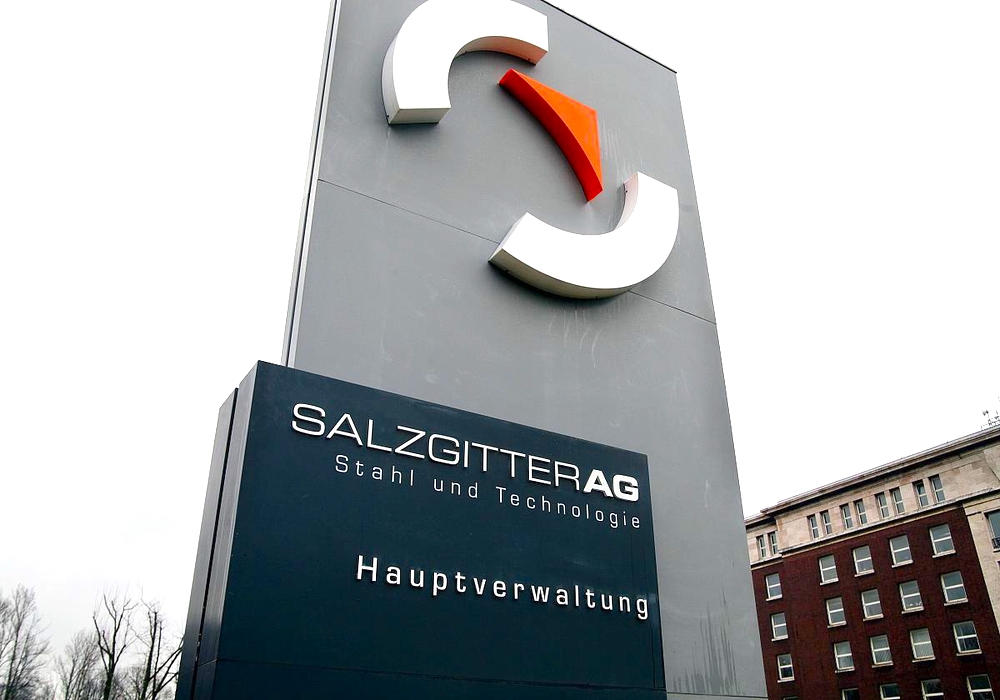
Salzgitter orders pickling section from Andritz
Technology group Andritz has received an order from Salzgitter Flachstahl to supply a new pickling section for the existing push pickling line designed for heavy-duty steel grades.
The line was supplied to the German steelmaker by Andritz in 1992, Kallanish understands. New process equipment will ensure continued reliable operation and increase the line’s efficiency, the Austrian equipment supplier says.
The scope of supply comprises Andritz proprietary high-end process technology for push pickling, it says. This includes a circulation system, high turbulence hydrochloric acid pickling, a compact rinsing and drying section, plus a state-of-the-art trimming shear. The new process equipment will improve strip threading through the pickling section and increase pickling efficiency, Andritz says.
Start-up is scheduled for mid-2025.
Christian Koehl Germany


Outokumpu secures land, considers nuclear reactor
The Finnish city of Tornio and Outokumpu have signed a pre-agreement regarding Outokumpu’s acquisition of 96 hectares of land in the Koivuluoto area next to Outokumpu’s Tornio operations. The steelmaker may use this to build a small modular nuclear (SMR) reactor, Kallanish notes.
The plan is to use the land area for industrial purposes by Outokumpu and its partners, which Outokumpu says enables it to create a vibrant ecosystem for a circular economy. As possible options for land use, it gives production of hydrogen, chemicals, synthetic fuels, or electricity needed for various industries. For electricity production, Outokumpu is currently reviewing a plan to build an SMR reactor in the Koivuluoto area.
“Outokumpu invests heavily in its sustainability strategy and the target is to reduce carbon dioxide emissions by 42% by 2030 compared to the 2016 baseline. Land acquisition is one of the corner stones in Outokumpu’s roadmap to enable the achievement of these targets,” says Tony Lindström, general manager of Outokumpu EvoEnergy.
Christian Koehl Germany

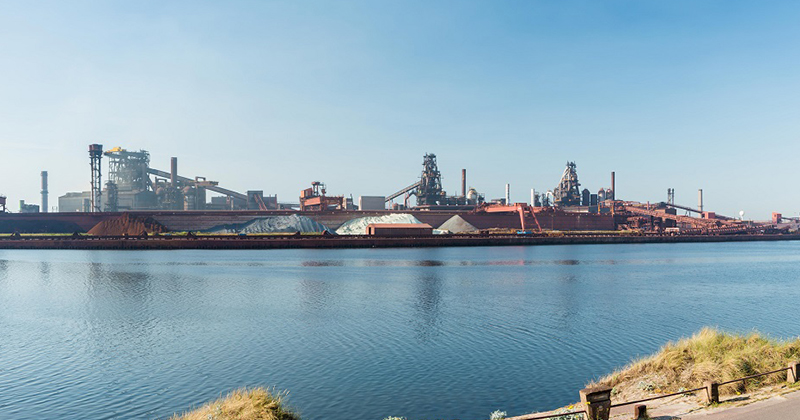
ArcelorMittal France new CCUS technology tests advance successfully
The so-called 3D Project, using a DMX technology demonstration plant for CO2 capture installed at ArcelorMittal’s Dunkirk plant, is operating stably and to expected efficiency and energy performance levels, says engineering company Axens, which commercialised DMX.
The pilot line capturing the CO2 in blast furnace gases has been the object of round-the-clock tests. The unit is producing CO2 with a high level of purity exceeding 90%, with low energy consumption and no solvent degradation despite the high concentrations of contaminants in the gas treated, Axens says.
The technology, patented by research company IFP Energies nouvelles (IFPEN), has taken 15 years of development, Kallanish notes. The steelmaker and Axens launched the 3D project in 2019. Coordinated by IFPEN, the French DMX technology is the result of a research project including ArcelorMittal, Axens, TotalEnergies, Air Products, Brevik Engineering, John Cockerill, DTU, Gassco, ETHZ and Uetikon.
It uses an amine demixing solvent to capture CO2 contained in the flue gases produced by heavy industries. Capture will be necessary in order to reduce industrial emissions. “The significant reduction in the energy required for the process and the excellent stability of the solvent make the DMX process a unique, innovative, efficient and flexible solution,” Axens says.
The DMX technology is seen accelerating French industry decarbonisation using a carbon capture utilisation storage strategy.
Natalia Capra France

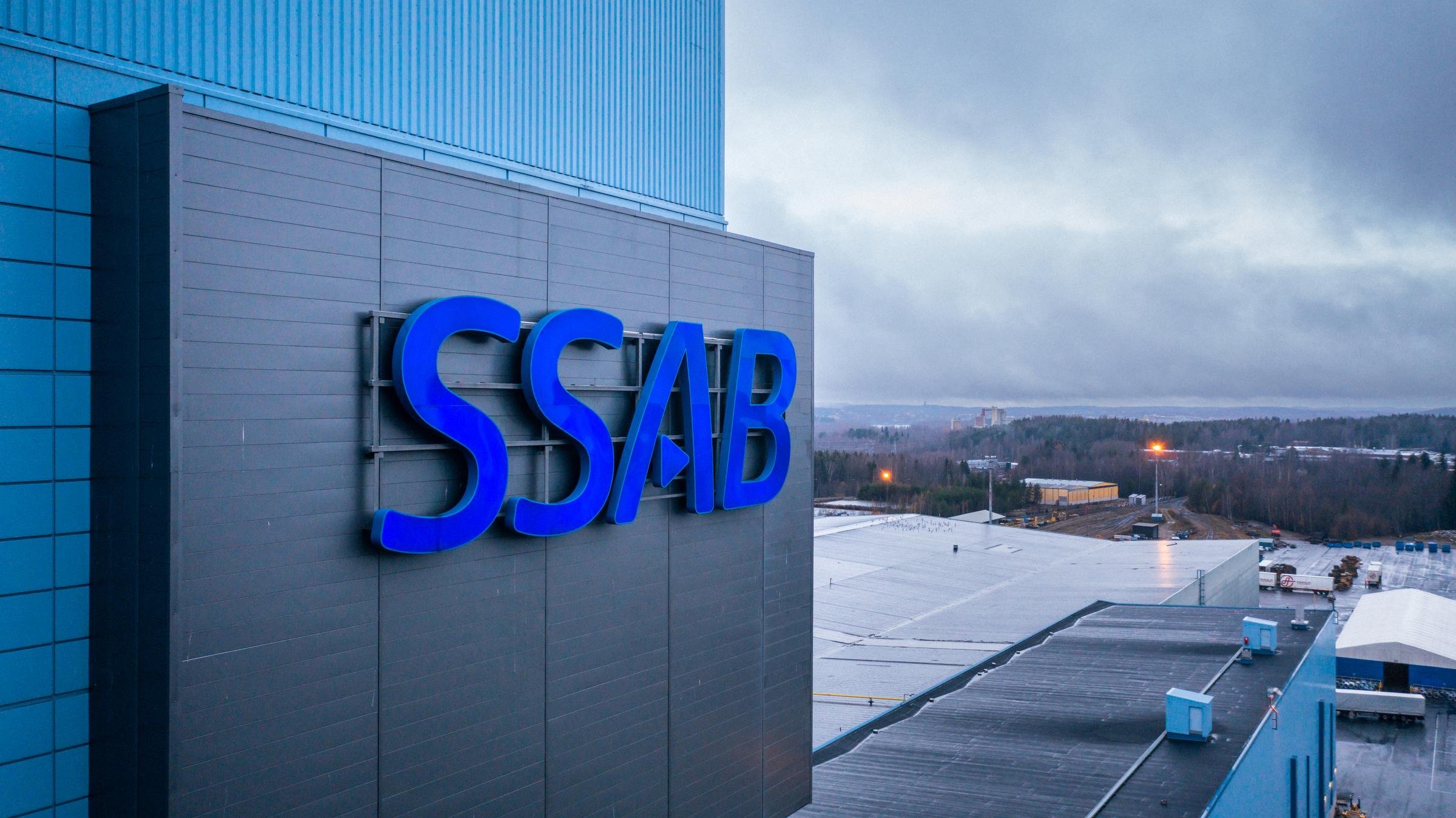
SSAB upgrades CR mill in Finland
SSAB has tasked Primetals with the next stage of upgrading stand No.1 at SSAB’s four-stand tandem cold rolling mill in Hämeenlinna, Finland.
One year ago, Primetals implemented mill stand drives for the stand No.1, During phases 1 and 2, it upgraded the drive system, including transformers, drive, and motor. In phases 3 and 4, the transformers, drives, and motors of the remaining mill stands will be modernised in a similar way to phases 1 and 2, Kallanish learns from the technology supplier.
In phase 5, an obsolete motor will be refurbished, allowing it to be used as a replacement for the other already modernised motors. The objective of the extensive upgrade is to secure the supply of spare parts for the mill stand drives well into the future. Moreover, the availability of the tandem cold rolling mill will be increased, Primetals explains.
The four-stand tandem cold rolling mill produces coil ranging from 660-1,575mm wide and 0.35-3.1mm thick. The mill, among other things, makes ultra high-strength steel products, mainly for the automotive industry, which provide greater impact protection in cars while reducing weight.
As SSAB is transforming its mills in Luleå and Raahe into mini-mills with electric arc furnaces, Hämeenlinna will be further developed in line with the new production processes, SSAB says in its latest annual report.
Christian Koehl Germany

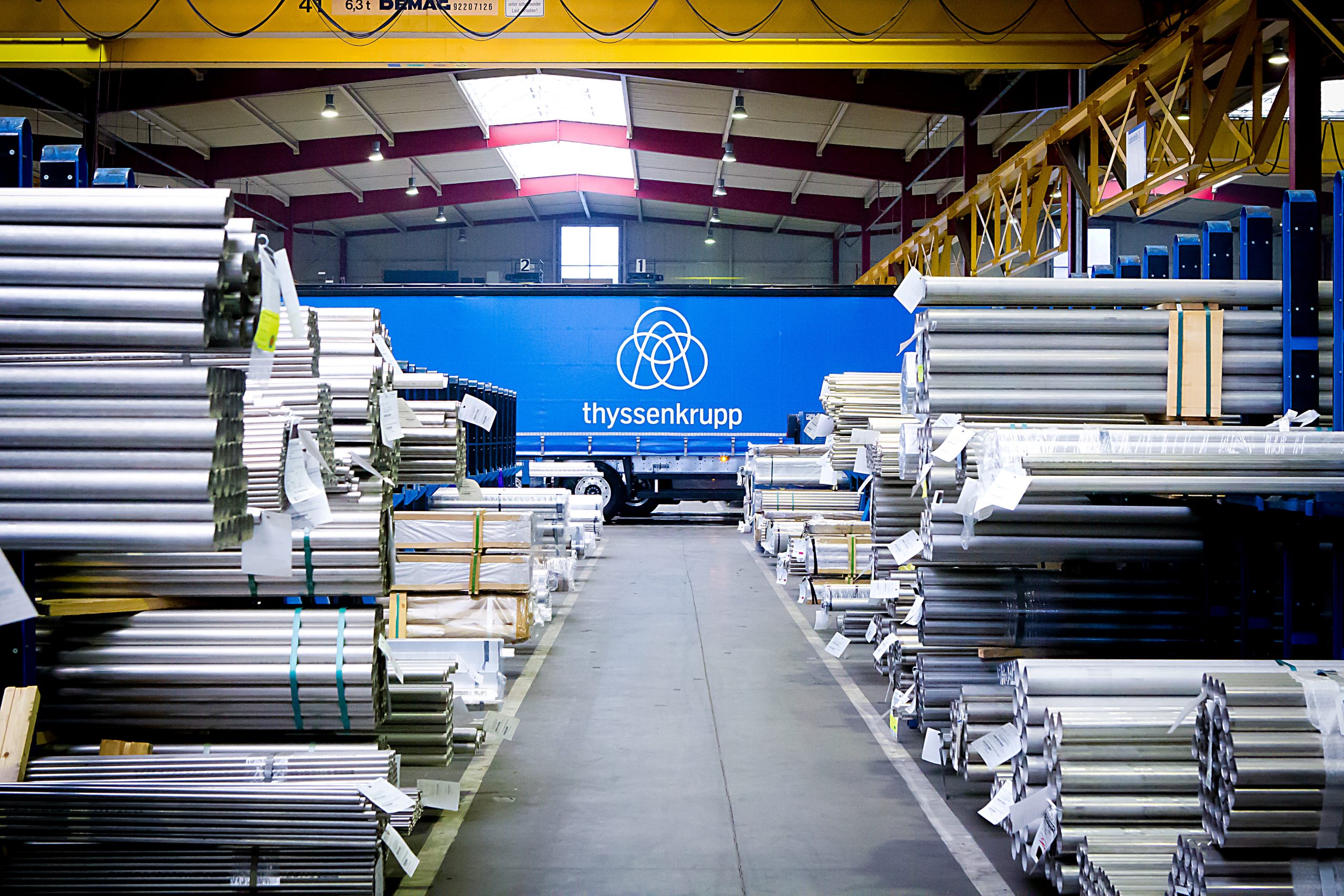
German alliance builds electric DRI smelter test facility
Thyssenkrupp Steel has commissioned Grenzebach Maschinenbau with the engineering, construction, and commissioning of a direct reduced iron electric smelter test facility at its Duisburg site, Kallanish hears from the steelmaker.
The smelter is part of the research on the carbon-neutral transformation strategy at the site, which also involves the German Iron and Steel Institute (VDEh)’s subunit, Institute for Applied Research (BFI). The project aims to show how sponge iron from direct reduction plants can be liquefied in an innovative smelter to produce electric hot metal, tk Steel explains. The contract is worth around €7.5 million ($8.1m), of which the North Rhine-Westphalia state economy ministry will fund 65% and tk Steel 35%.
BFI will test different feedstocks, such as direct reduced iron, alternative carbonaceous products and recycled materials, for hot metal production. The first trial campaigns are scheduled to start at the beginning of 2026. The demonstration-scale smelter with a capacity of 100 kg/hour of DRI is adapted to the DRI test facility.
Last week, thyssenkrupp and BFI chose TS Elino to supply the DRI test facility (see Kallanish passim). The two units will collaborate to focus research on hydrogen-based direct reduction technology.
“Hydrogen-based direct reduction in combination with melters is an innovative approach that thyssenkrupp Steel is implementing on a large industrial scale for the first time,” comments chief technology officer Arnd Köfler. “The experimental melter and the direct reduction test facility … will enable us to use different charge materials flexibly, and to find answers to the fundamental technological questions surrounding the transformation of steelmaking.”
Christian Koehl Germany

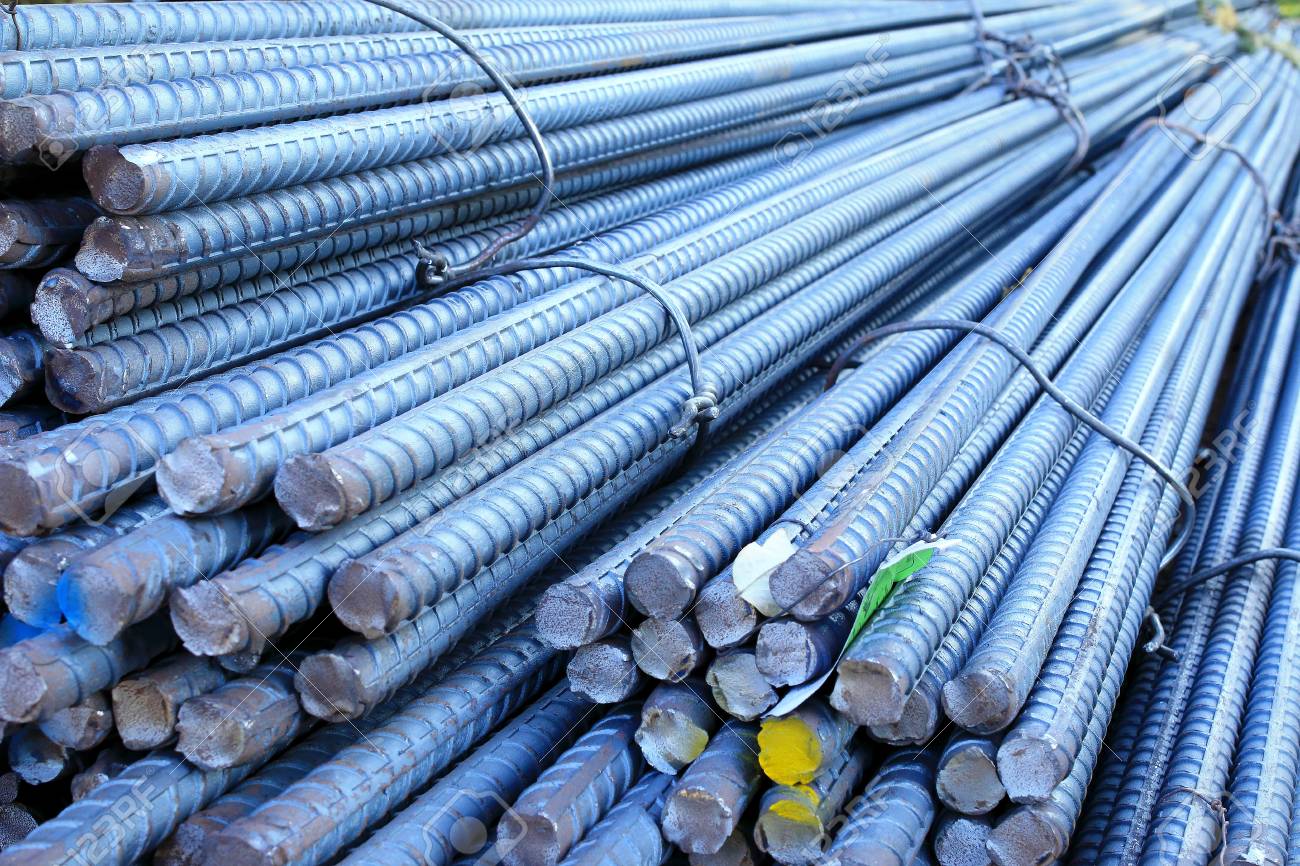
Stahl Gerlafingen ponders closure of production line
In a statement sent to Kallanish upon request, the company bemoans a de-facto export ban by the EU since mid-2023 and also criticises the EU for financial support measures it grants to EU mills. “Our exports of merchant bar, which in the past generated good revenue and margins, have been effectively banned by the EU, regardless of the free trade agreement between Switzerland and the EU,” the statement reads.
It also cites high costs for power in Switzerland, highlighting the particularly high grid fees, which have contributed to pushing the company into the red. Stahl Gerlafingen’s main product is actually rebar, which comprises more than two thirds of its annual output of up to 700,000 tonnes, but this product is not mentioned in the statement.
The management, headed by Alain Creteur, is now pondering the closure of one rolling line, and is talking to local policy-makers to jointly find a solution. “From a commercial point of view, a closure of one line is unavoidable, but it would also mean the loss of many jobs,” he says.
Policy-makers on the regional and national level are currently in discussion to find a solution, so the company has postponed its closure decision, in agreement with the Beltrame family. It notes that the melt shop and other main facilities would not be affected by such a decision.
Last weekend, local newspapers cited Swiss economy minister Guy Parmelin as saying that the government is in “intense” talks over Stahl Gerlafingen. However, he also noted that he does not consider the steel industry in Switzerland to be “systemically relevant”, contrary to Stahl Gerlafingen’s claim.
Christian Koehl Germany


ArcelorMittal expands Magnelis production in Spain
ArcelorMittal says it will expand coated steel production after concluding the upgrade of galvanizing line No.1 at its Avilés plant in Spain, Kallanish learns from the company.
The project included enabling the line for production of “Magnelis”, the firm’s product with an anti-corrosion metallic coating. The plant has been producing this at galvanizing line No.2 since 2017.
“We began large-scale production at line No.1, after several months of work to adapt the facility and an important series of tests to validate the product,” the company says. “The investment places the Avilés plant as one of the Group’s main Magnelis manufacturing units.”
The new corrosion resistance steel products, whose characteristic is a composition coating with a higher content of aluminium and magnesium, come in 2-3.5mm thicknesses, something that was not feasible at line No.2.
ArcelorMittal plans to double the volume of Magnelis produced in Asturias. Since its inauguration in 2017, the No.2 line’s cumulative output has exceeded 500,000 tonnes.
ArcelorMittal thus expects to meet most demand for Magnelis in the Iberian market. This specific product is mainly supplied to the solar energy sector for the construction of photovoltaic park infrastructure. Magnelis offers a substantially lower environmental impact than that of alternative materials, ArcelorMittal claims.
Todor Kirkov Bulgaria


Southern European apparent longs demand to resurface: mills
Apparent demand for long products is seen recovering slightly in the second quarter in southern European countries such as Portugal, Italy, Spain and Greece, while real demand should remain depressed, mill sources believe.
Apparent demand for wire rod, merchant bar, rebar and sections is seen resurfacing a few weeks after Easter, given international scrap prices have stopped dropping. Sources who spoke to Kallanish believe scrap values will stabilise in the coming weeks, supported by low availability and strong EU and international demand.
The European longs market is being impacted by lower consumption from the construction sector. However, southern EU countries are performing better than northern Europe, with better shipments in Q1 2024 compared to Q3 and Q4 2023. Rebar sales are particularly weak in France and Germany where the construction sector has suffered a strong setback. Sales are also better in eastern European countries such as Poland, as well as the UK.
Rebar prices in northern and eastern Europe are at €610-630/tonne ($662-684) delivered, depending on tonnage, sources suggest. All markets are seen remaining quiet this month, with customers shunning sales until after Easter.
In Q1, merchant bar and sections have suffered low apparent and real demand, but some orders are now resurfacing. Most buyers in Europe restocked in November and December last year and have been destocking ever since.
Merchant bar is the worst-performing product for sales at present, sources point out. Prices in northern Europe have fallen from over €700/t delivered to an average of €650/t delivered. The merchant bar stagnation is seen continuing in Q2, albeit with brief spells of slightly better demand.
Apparent demand for sections should resurface after a long period of destocking, bringing some price stability, but woes over consumption continue. Wire rod may also see renewed demand in April, with fewer imports expected amid depleting stocks. Its prices are at some €630-650/t delivered in Europe.
Rebar prices are forecast to see some stability in southern Europe in the coming quarter, but the German and French markets will continue to suffer.
Natalia Capra France

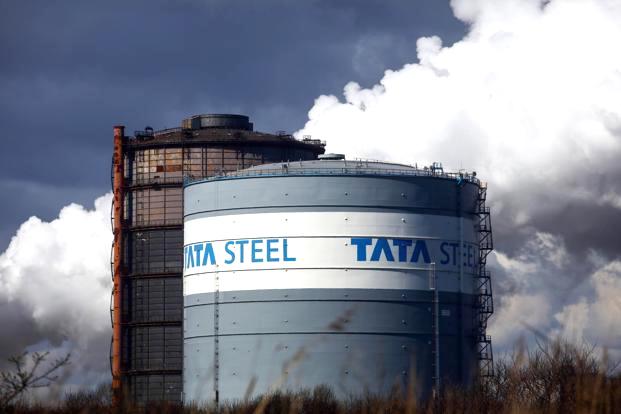
Tata Steel UK to close coke ovens on March 20, shut down one BF in summer
“The performance of the coke ovens has been deteriorating over many months, despite herculean efforts by the teams there. The condition of the ovens has now worsened to a level that makes continued operation untenable,” chief executive officer Rajesh Nair said on March 18.
“We will now begin the process of safely closing and purging the coke ovens, and ceasing operations at the adjoining By-Products plant,” he added.
In January this year, the company announced plans to shut down the hot-end at Port Talbot before the end of 2024.
One of two operating blast-furnaces (BFs) at Port Talbot will be shut down in summer this year, according to a press release.
Port Talbot is equipped with two BFs with combined capacity for 5 million tonnes per year, and two basic-oxygen furnaces (BOFs) with capacity for 4.8 million tpy. The site at Port Talbot produces hot-rolled and cold-rolled coil, as well as tubes.
Tata Steel plans to replace the existing BF-BOF production route at Port Talbot with more eco-friendly electric-arc furnace (EAF) operations, with new EAFs expected to come online in 2027.
Tata Steel intends to keep its hot-strip mills operating, and the company’s downstream and steel processing centers will also keep working.
Market sources suggested that the company would use both imported slab and slab produced by its own asset in the Netherlands to feed its hot-strip mill.
Unions may consider strike over BF closure
Trade unions described the decision to close the coke ovens as a “massive blow” but admitted that they had expected the decision because of the condition of the equipment.
At the same time, the trade unions expressed their disappointment over Tata’s decision to proceed with this summer’s proposed closure of BF4, and warned of possible industrial action.
“Regretfully, the coke ovens were always going to close during the transition period,” Alun Davies, National Officer for Steel at steelworkers’ trade union Community, said on March 18. “Once national consultations conclude, we will ballot for industrial action, should Tata confirm its intention to close BF No4.”


